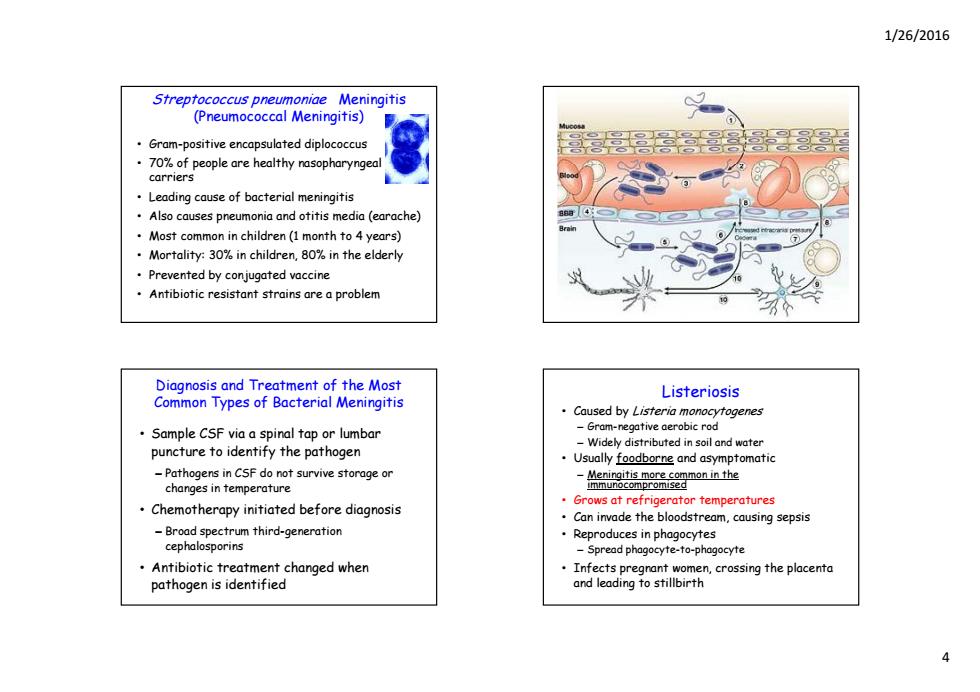正在加载图片...

1/26/2016 Streptococcus pneumoniae Meningitis (Pneumococcal Meningitis) Gram-positive encapsulated diplococcus .70%of people are healthy nasopharyngeal carriers Leading cause of bacterial meningitis Also causes pneumonia and otitis media (earache) Most common in children(1 month to 4 years) Mortality:30%in children,80%in the elderly Prevented by conjugated vaccine Antibiotic resistant strains are a problem Diagnosis and Treatment of the Most Listeriosis Common Types of Bacterial Meningitis Caused by Listeria monocytogenes Sample CSF via a spinal tap or lumbar -Gram-negative aerobic rod -Widely distributed in soil and water puncture to identify the pathogen Usually foodborne and asymptomatic -Pathogens in CSF do not survive storage or changes in temperature .Chemotherapy initiated before diagnosis Grows at refrigerator temperatures Can invade the bloodstream,causing sepsis -Broad spectrum third-generation Reproduces in phagocytes cephalosporins -Spread phagocyte-to-phagocyte Antibiotic treatment changed when Infects pregrant women,crossing the placenta pathogen is identified and leading to stillbirth1/26/2016 4 Streptococcus pneumoniae Meningitis (Pneumococcal Meningitis) • Gram-positive encapsulated diplococcus • 70% of people are healthy nasopharyngeal carriers • Leading cause of bacterial meningitis • Also causes pneumonia and otitis media (earache) • Most common in children (1 month to 4 years) • Mortality: 30% in children, 80% in the elderly • Prevented by conjugated vaccine • Antibiotic resistant strains are a problem Diagnosis and Treatment of the Most Common Types of Bacterial Meningitis • Sample CSF via a spinal tap or lumbar punct t id tif th th ture to identify the pathogen – Pathogens in CSF do not survive storage or changes in temperature • Chemotherapy initiated before diagnosis – B d hi d Broad spectrum third-generati on cephalosporins • Antibiotic treatment changed when pathogen is identified Listeriosis • Caused by Listeria monocytogenes – Gram-negative aerobic rod – Widely distributed in soil and water • Usually foodborne and asymptomatic – Meningitis more common in the immunocompromised • Grows at refrigerator temperatures • Can invade the bloodstream, causing sepsis • Reproduces in phagocytes – Spread phagocyte-to-phagocyte • Infects pregnant women, crossing the placenta and leading to stillbirth